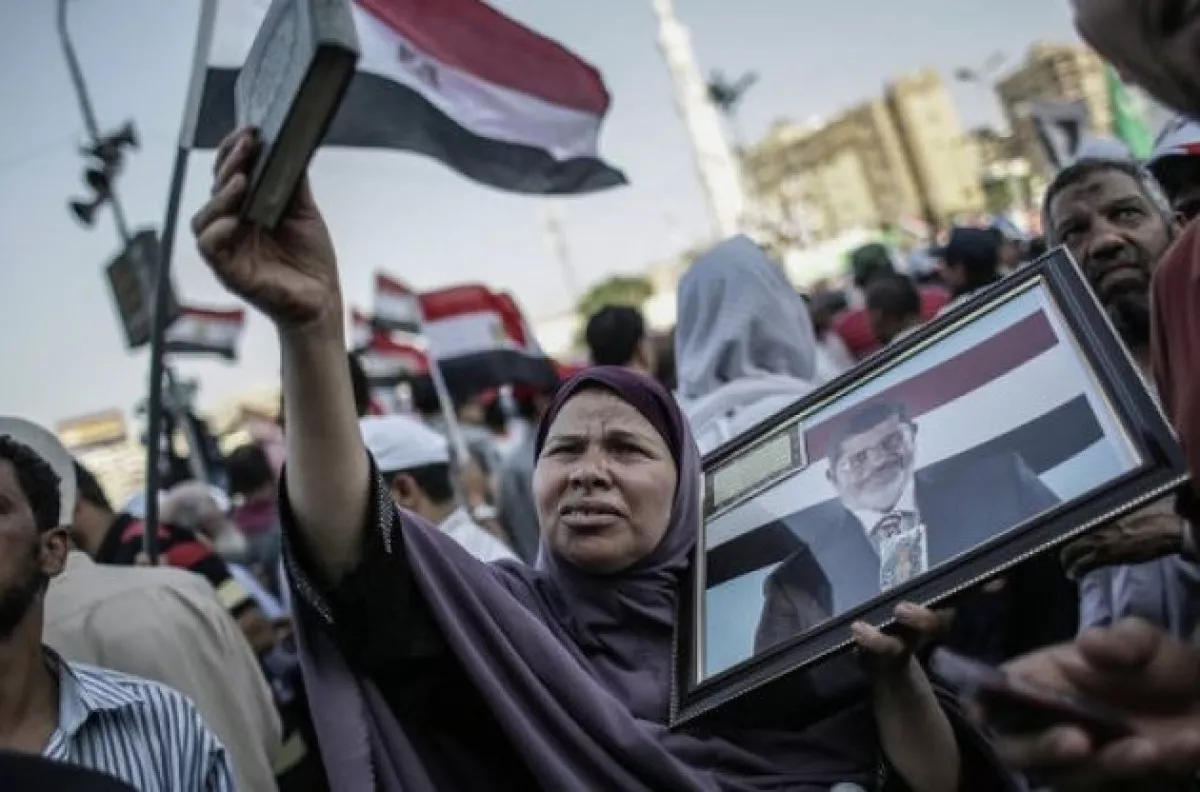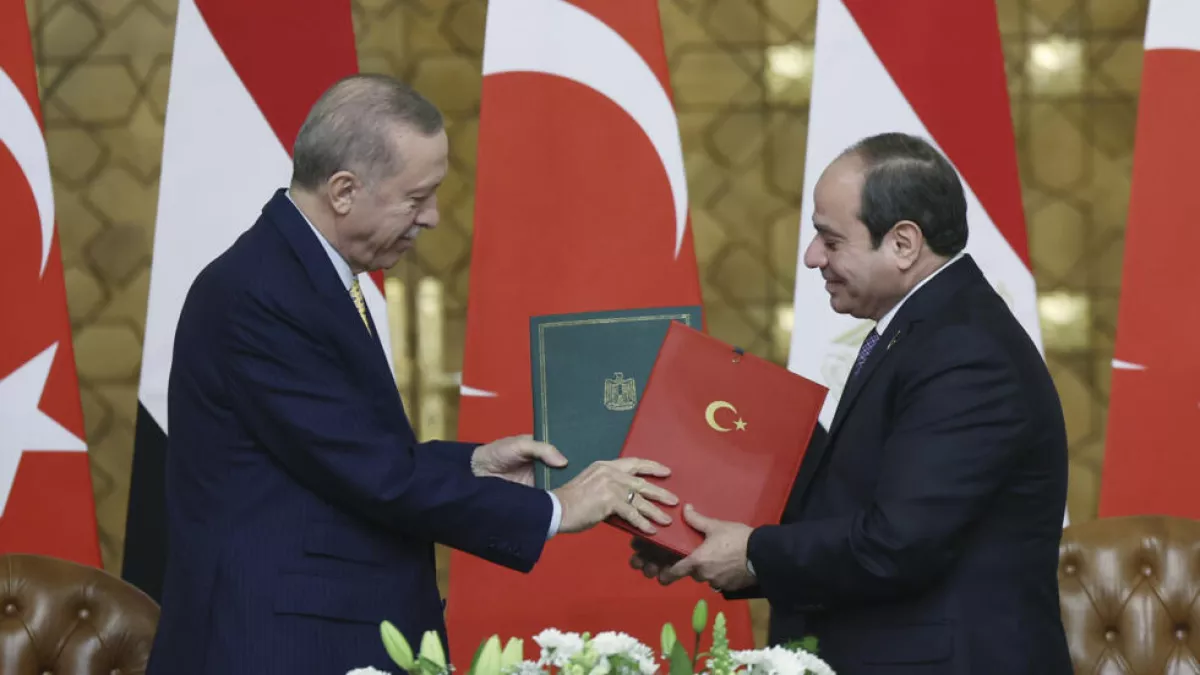Türkiye and Egypt: A shift towards reconciliation Has the Conflict Been Left Behind?
Egyptian President Abdel Fattah el-Sisi’s visit to Türkiye on September 4-5 followed President Recep Tayyip Erdoğan’s visit to Egypt earlier this year in February. The two countries are continuing to draw closer, marking a significant development for the entire Middle East. Just a few years ago, these two major nations were embroiled in a sharp conflict that had the potential to escalate into armed confrontation.
Türkiye initially hoped that the government of the Muslim Brotherhood, led by President Mohamed Morsi (2012-2013), would foster friendly relations with Ankara. Thus, Türkiye was displeased when the military intervened and removed Morsi in 2013, leading to the Brotherhood's official ban in Egypt. Relations between President Erdoğan and Egypt's new leader, General Sisi, have been tense from the beginning.
Moreover, Türkiye supports the internationally recognized Government of National Unity (GNU) in Tripoli, Libya. This government has historical connections to local Libyan branches of the Muslim Brotherhood, which are allies of Egypt’s Brotherhood. Conversely, Egypt backs eastern Libyan tribes and factions led by Field Marshal Khalifa Haftar and his army, who oppose the Tripoli government.
For Ankara, supporting Tripoli represents an effort to establish a foothold in Libya and potentially recover about $20 billion in investments made during Muammar Gaddafi’s regime. However, Cairo views this as a direct challenge. Sisi is particularly concerned about the potential for the Muslim Brotherhood (an international movement present in both Egypt and Libya) to gain influence near Egypt’s border.

By the end of the 2010s, relations between Ankara and Cairo had soured as both countries found themselves on opposite sides of the Libyan civil war. Additionally, Türkiye and Egypt independently delineated their maritime boundaries, resulting in disputes over maritime gas fields, which further complicated the situation regarding Libya. The prospect of armed conflict between these two large nations became increasingly palpable.
Another significant point of contention emerged involving the United Arab Emirates (UAE) and Saudi Arabia—two wealthy Sunni monarchies in the Persian Gulf—who were sponsors of Sisi's government. Meanwhile, Qatar, a small but wealthy gas-rich nation and ally of Türkiye, supported the Muslim Brotherhood, which was perceived as a challenge by the Saudis and Emiratis. Facing the threat of invasion, Qatar sought Türkiye’s support, which responded by establishing military bases in Qatar. This led to the formation of two blocs: one consisting of Türkiye and Qatar, and the other composed of Saudi Arabia, the UAE, and Egypt.
Moreover, the alliance of Egypt, Saudi Arabia, and the UAE began to expand its influence, involving Greece and Cyprus—countries that have strained relations with Türkiye over disputed maritime territories and gas fields.
However, starting in 2021, a détente began to develop between the states. Approaching the brink of a major war, which could have been fought in Libya and the Eastern Mediterranean due to disputed gas fields and political conflicts, both sides decided to step back. Such a conflict could have been too risky and costly for all involved.
The foundation for Türkiye's policy shift was laid by the country's intelligence, led by the astute diplomat Hakan Fidan, who currently heads the Ministry of Foreign Affairs. This shift involved rapprochement with both Sisi and other Erdoğan opponents, such as Saudi Crown Prince Mohammed bin Salman and UAE President Sheikh Mohammed bin Zayed Al Nahyan. In July 2023, Egypt and Türkiye restored diplomatic relations that had been severed in 2013 following the ousting of President Morsi in Egypt.
Just a few days after President Erdoğan’s visit to Egypt in February, Türkiye revoked the citizenship of Mahmoud Hussein, a former leader of the Istanbul branch of the Muslim Brotherhood.

The rapprochement between the two countries also has economic motivations. Egypt is experiencing a severe economic crisis due to internal issues. With 70 percent of its population living in poverty on just a few dollars a day, the country is in desperate need of international economic cooperation and investment. Türkiye is also facing economic difficulties, though they are not as severe as Egypt's. High inflation rates have forced the government to significantly raise interest rates. While inflation is beginning to decrease, the process is slower than anticipated.
On the other hand, high interest rates have led to reduced industrial activity, as bank loans have become expensive. In this context, Ankara needs international investment to jumpstart economic growth. Its robust export-oriented industrial economy requires additional funding. Consequently, Erdoğan is keen to attract Saudi and Emirati investments. The rapprochement with Egypt, a country allied with the Saudis and Emiratis, reflects this intention and serves this purpose.
“Since his victory in the 2023 presidential elections, Erdoğan has been pursuing a relatively sincere policy of warming relations between Ankara and Cairo, with genuine alignment on various issues. Sisi's visit to Ankara is significant as its outcome is likely to reinforce this trend,” said Jalel Harchaoui, a leading regional expert and junior research fellow at the Royal United Services Institute, a think tank in London.
Harchaoui notes that Türkiye and Egypt are making substantial efforts to find common ground in Libya, which could influence the current Tripoli government supported by Türkiye. Additionally, the two countries are united in their stance on Sudan, both backing the Sudanese Armed Forces (SAF) led by General Abdel Fattah al-Burhan. It’s important to remember that Sudan is currently in conflict between the SAF and the Rapid Support Forces (RSF), with Cairo and Ankara supporting the SAF.
In Ethiopia, however, Egypt and Türkiye are not entirely aligned, especially with the growing tensions between Eritrea and Ethiopian Prime Minister Abiy Ahmed. Nonetheless, Türkiye is "working to avoid escalating the situation."
Interestingly, experts suggest that a significant pillar of cooperation between Ankara and Cairo could be the defense industry. For instance, Nebahat Tanriverdi, a Turkish researcher from Germany, cites the Hurjet, a two-seat supersonic jet from Turkish Aerospace Industries, which made its international debut at an airshow in Egypt on September 2 after flying across the Mediterranean. This inaugural flight "demonstrates Ankara's commitment to developing the export of Turkish defense products to Egypt, a topic that was also discussed prior to President Erdoğan's visit to Cairo on February 14."
Additionally, Türkiye is keen to participate in regional projects aimed at transporting Egyptian natural gas to Europe, especially in light of Western efforts to reduce dependence on Russian gas. "We are committed to expanding our energy cooperation with Egypt, particularly in natural gas and nuclear energy," emphasized Erdoğan.
He also highlighted a shared goal between Egypt and Türkiye to increase bilateral trade from the current $10 billion to $15 billion. Türkiye is one of Egypt's top five trading partners, and Turkish direct investments in Egypt have risen to $3 billion over the past year. This is a significant amount for Egypt, which is in dire need of foreign currency inflows and job creation.
The leaders of the two countries have signed a declaration reaffirming their commitment to enhance coordination on several regional issues, including Gaza, Libya, and the Horn of Africa.
It is important to remember that alliances in the Middle East are often situational. Countries that have been adversaries in the past are now seeking common ground, as it has become more advantageous to do so.








